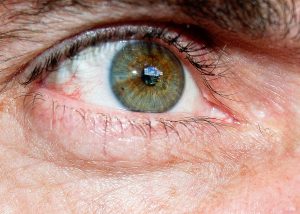
As you get older, your brain changes with you. In fact, age is the biggest contributing factor to diseases that affect your cognitive abilities. That’s arguably why diagnoses for conditions like Alzheimer’s in New York State are expected to rise from 410,000 to 460,000 between 2023 and 2025 alone: more individuals classified as Baby Boomers, among the most populous generations in history, are now of retirement age and are more at risk of developing these diseases.
Fortunately, you can lower your risk of getting cognitive-impairing conditions. In doing so, though, it’s important to remember that age isn’t the only thing that causes them. In particular, recent research reveals that one unlikely factor can make you more likely to develop dementia: vision impairments. Here’s more on why that can happen—and what you can do to prevent it.
How aging vision heightens dementia risk
A study published in JAMA Ophthalmology recently observed that older American adults with vision impairments are more likely to develop dementia. Though these findings don’t imply that aging eyesight directly causes the disease, researchers did notice that many of the study’s subjects exhibited better cognitive skills after improving their eye health.
Experts hypothesize that’s because the parts of the brain that control your vision closely interact with other parts responsible for skills like memory, emotion, and decision-making. When an older adult is diagnosed with an age-related eye condition, including presbyopia, glaucoma, cataracts, and age-related macular degeneration (AMD), their brains receive fewer visual inputs, and that may affect their cognitive abilities.
As such, the study recommends that you be wary of the relationship between eye and brain health as you age. The best way to do so is by prioritizing eye care, especially if you have a family history of dementia or are 65 or older. Consider following these best practices:
Preventing vision impairments and dementia
Regular eye exams
Many age-related eye diseases don’t exhibit symptoms. Take glaucoma, the world’s second-leading cause of blindness. It affects the optic nerve at the back of the eye, so regular eye tests that check for 20/20 vision can’t spot it. Early detection is thus crucial. Otherwise, you may only find out you have a vision impairment once it’s progressed significantly enough to increase your risk of dementia.
A comprehensive eye exam is often the best way to detect any abnormalities in the eye even before they become symptomatic. This test will provide a more complete assessment of your vision health that also considers factors like your optic nerve and intraocular pressure, both of which are related to diseases like glaucoma. If you need to look for the nearest place you can get one, consider scheduling yours online. LensCrafters is one major retailer that hosts optometrists at its physical locations, and you can use its site to book exams at your chosen store. Be sure to do so regularly. The American Academy of Ophthalmology recommends annual checkups for older adults.
Year-round sun protection
Another crucial eye care practice is to wear sunglasses, even outside the summer months and on overcast days. The sun’s UV rays can still reach the ground in these conditions, and they’re a major contributing factor toward age-related eye conditions like cataracts—the world’s top cause of vision loss—and AMD. Be sure you’re using 100% UV-blocking sunglasses, as not all pairs provide this protection. You may want to look into a model from leading brands like EnChroma, which is best known for releasing eyewear that corrects color blindness. The sunglasses from its Lx series are specifically designed to combat age-related vision impairments.
Diet and exercise
To better preserve healthy vision and ward off dementia as you age, it’s best to nourish them with the proper vitamins and minerals, as well as the right amount of blood flow. You can start with what you eat. Leafy greens, fatty fish, and popular eye-friendly foods like carrots contain compounds like Vitamins A, C, and E, omega-3 fatty acids, lutein, zeaxanthin, and zinc. These are all proven to lower your risk of developing AMD, cataracts, and glaucoma, and can even slow their progression if you already have a diagnosis.
You’ll also want to maintain an active lifestyle. Regular exercise promotes better blood circulation and can lower your blood pressure, meaning it can similarly help you avoid the high intraocular pressure that causes glaucoma. Working out can also prevent blood vessel overgrowth in the eyes, potentially lowering your risk of developing AMD, cataracts, and even other eye diseases tied to age-related, chronic conditions like diabetic retinopathy. For the best effect, the CDC recommends doing aerobic exercises for at least 150 minutes a week.

